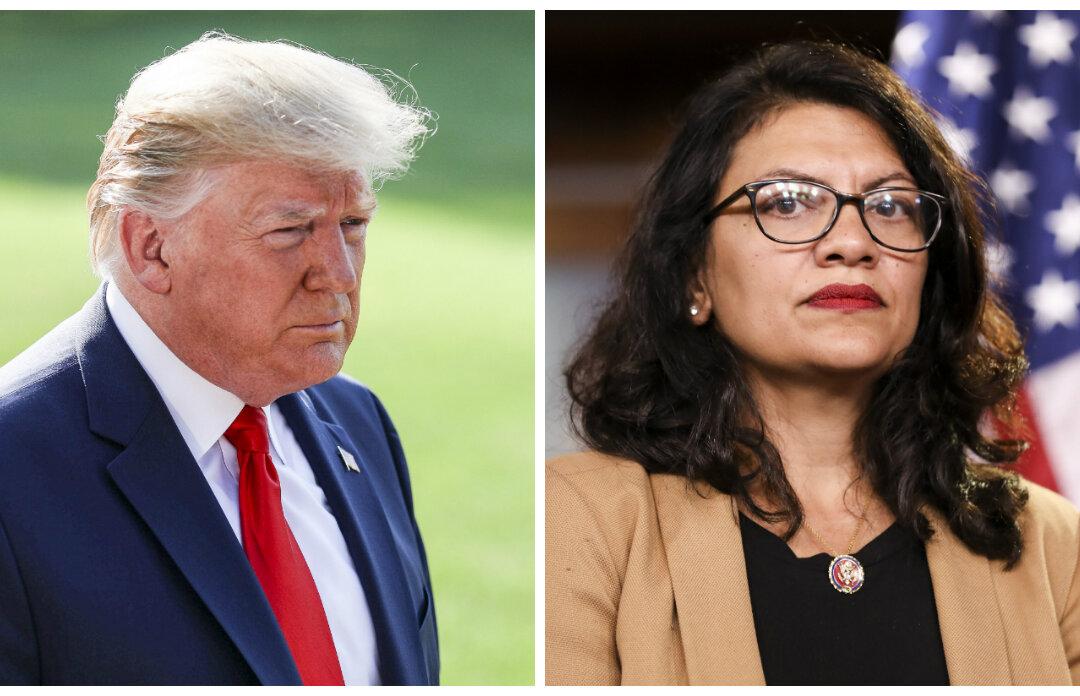President Donald Trump weighed in after Rep. Rashida Tlaib (D-Mich.) declined to travel to the West Bank to see her 90-year-old grandmother, wondering if it was a setup.
“Israel was very respectful and nice to Rep. Rashida Tlaib, allowing her permission to visit her ‘grandmother.’ As soon as she was granted permission, she grandstanded and loudly proclaimed she would not visit Israel. Could this possibly have been a setup? Israel acted appropriately!” the president wrote on Twitter late Aug. 16.





